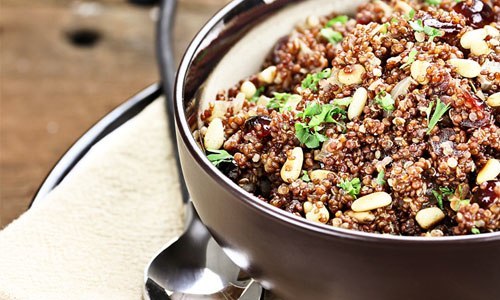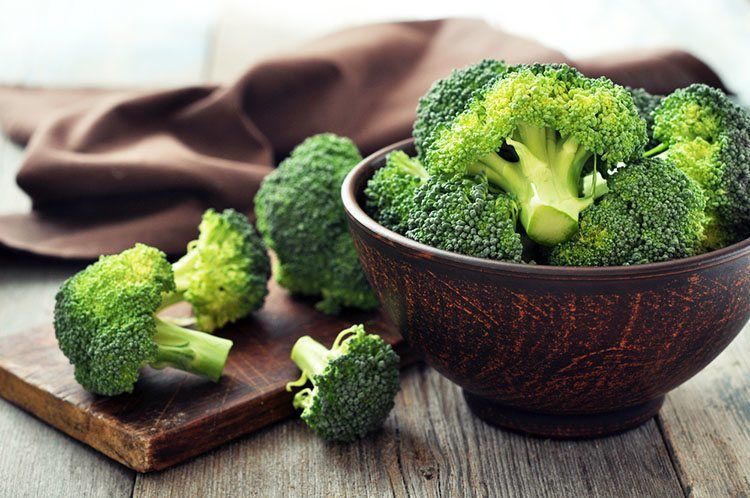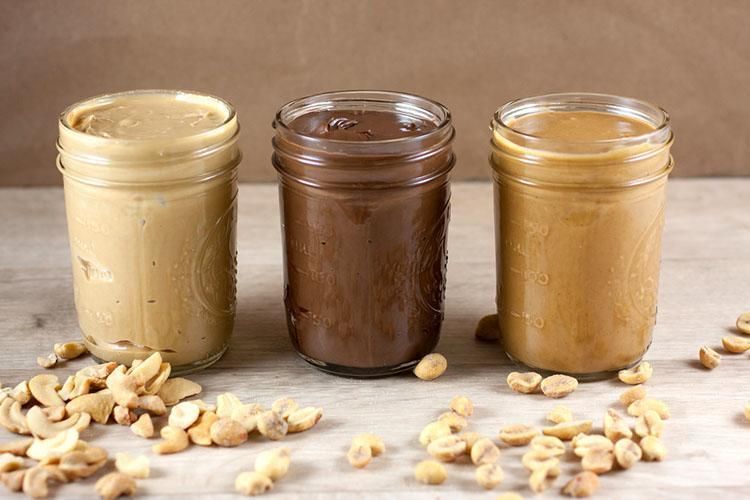

8. Broccoli: This is a surprise, right? Broccoli contains 5 grams of protein per cup. The problem, of course, is that you probably won’t eat more than a cup of broccoli at one sitting. But combine cooked broccoli with quinoa or dip raw broccoli in hummus and you have a satisfying, protein-rich meal for lunch or dinner.
9. Green Peas: One cup of cooked peas contains about 79 grams of protein, almost the same as a cup of milk. Serve them as a side dish, stir them into soup or macaroni and cheese or blend them with olive oil, parmesan cheese and toasted pine nuts to make a delicious pesto.
10. Seeds: Both hemp and chia seeds are protein dense and add good fiber to your diet, too. Toast them and sprinkle them over salad, stir them into yogurt and oatmeal or blend them into smoothies. Sunflower, sesame and poppy seeds are also protein powerhouses, which you can add to muffins, salads, stir fries or, in the case of sunflower seeds, eat on their own.
11. Nuts and Nut Butters: The upside is that nuts are very protein-dense, between five and six grams of protein per ounce. The downside is that they’re also high in calories. Your best bet is to eat nuts and nut butters plain, without hydrogenated oils or lots of added sugar. Get dry roasted or buy them raw and roast them at home. You can grind peanuts into peanut better at some food co-ops and grocery stores or look for butters that clearly say “just peanuts” or “just almonds” plus perhaps some salt, on their labels.
12. Edamame: Boiled edamame soybeans contain 8.4 grams of protein per half cup, but I bet you won’t stop there. You boil them up in their pods, then sprinkle them with a little salt and maybe a dash of soy sauce and slurp out the beans.
13. Milk: If you’re vegan, go the soy, almond, hemp, flax or rice milk route. If you consume dairy, cow’s, sheep’s and goat’s milk might be more to your liking. According to the U.S. Department of Agriculture, one cup of nonfat milk contains 8.26 grams of protein or 16 percent of your daily value for protein. It’s also rich in calcium, riboflavin, vitamin D and other minerals.
14. Yogurt: Thick and creamy Greek yogurt may contain twice as much protein as regular yogurt, but read the label of whichever option you choose, as some companies add gelatin, an animal collagen product or carmine, a natural dye derived from the body of beetles. Look at sugar and fat content, as well. I generally prefer non-fat, no sugar added Greek yogurt or I make my own out of non-fat organic milk, a couple of tablespoons of yogurt and maybe a half cup of powdered organic milk.
15. Eggs: If you’re not vegan, eggs could be a terrific meat and tofu substitute for you. One large whole egg contains six grams of protein: three in the yolk and three in the white. Eggs also contain an abundance of vitamins and minerals, plus many of the amino acids you need for complete protein. If you’ve got room in your yard, you can humanely raise your own chickens and collect the eggs without much ado.
YOU MIGHT ALSO LIKE
5 Reasons High Fructose Corn Syrup Will Kill You
Venus and Serena Williams: Raw Vegan Powerhouses
10 Foods That Help Fight Cancer
Is Drinking Red Wine Healthy for Me?

 233k
233k  41k
41k  Subscribe
Subscribe 

